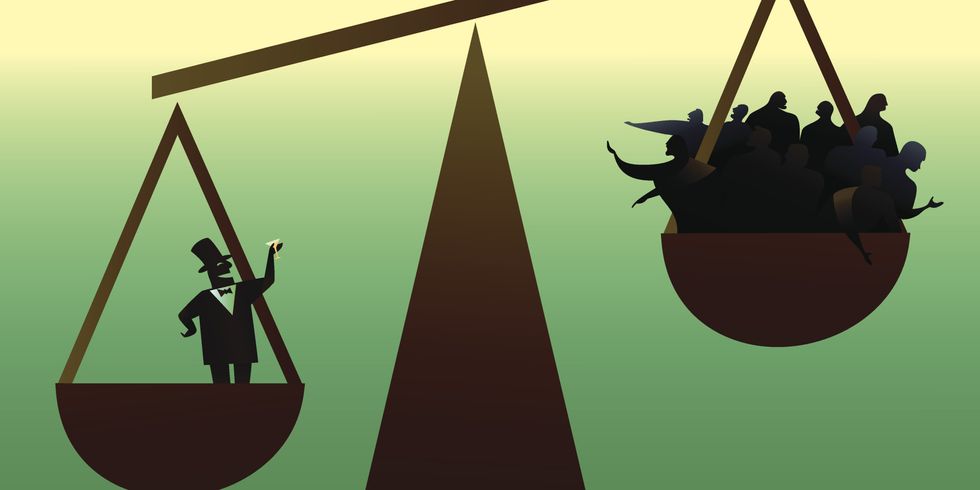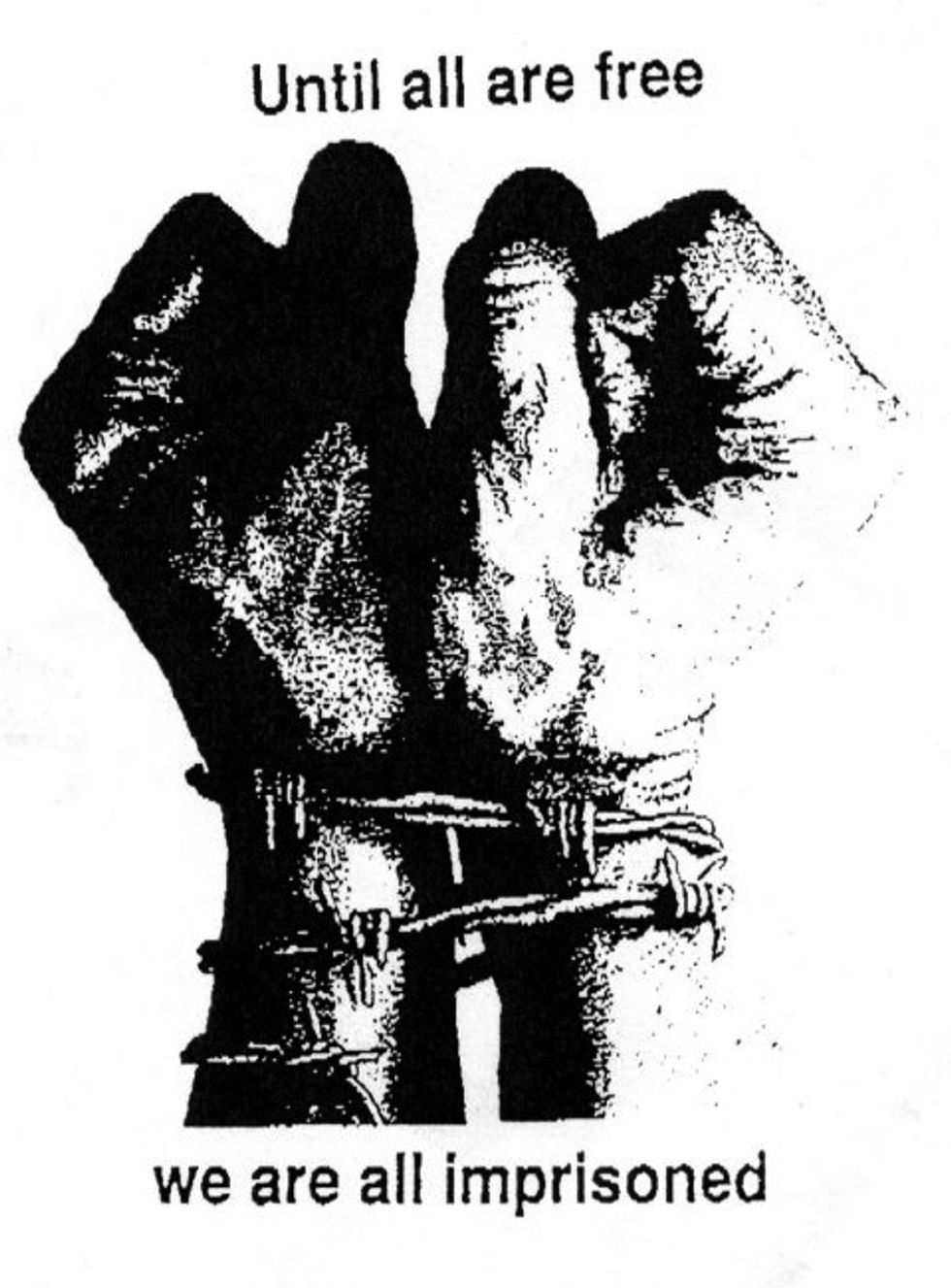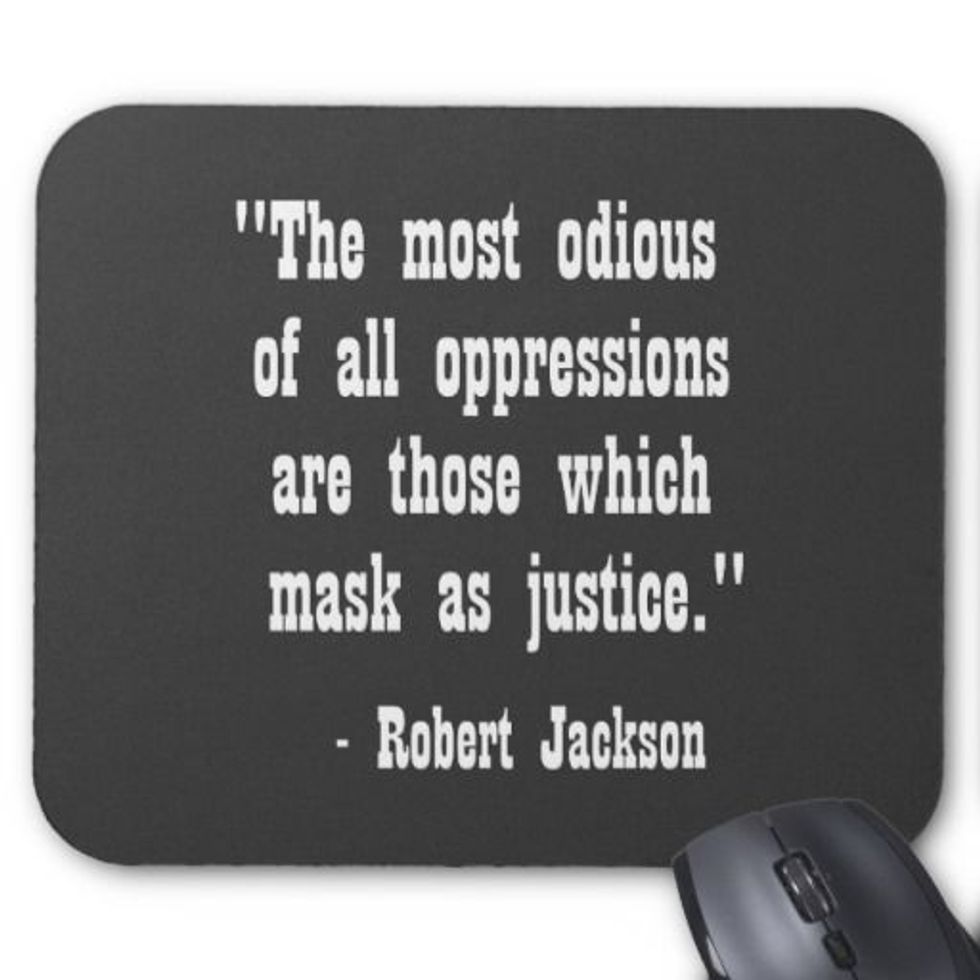This past semester, I took a class at my university that was a part of the Inside Out Prison Exchange program. In courses such as these, the class takes place inside a local prison, and the class is half university students, "outside students," and half inmates, "inside students." Our class took place at a local men's prison, and it was one of the best experiences of my life.
The course that I took through this program was a sociology course entitled "Crime and Inequality." The course focused on the oppression that exists within our society, specifically racial oppression, class oppression and gender oppression. There is so much that I learned and experienced in this course that I could talk about, but right now, when everyone is arguing over healthcare and tax plans, I'd like to discuss an activity that we did about class oppression.
Our professor randomly divided us up into five groups, each with four students. He labeled each group with a different class category: the top 20 percent, the 2nd 20 percent, the middle 20 percent, the 4th 20 percent, and the bottom 20 percent. These correspond to the economic classes that exist in our country. I was in the bottom group.
My professor then wrote on board the percent of the total income made in the U.S. that each group makes. Not surprising, the top 20 percent made significantly more than everyone else. Then, he did the same thing for the percentage of total wealth owned by each class.
To clarify, income is how much you earn from your job and your investments. Wealth comes from the assets that you own, including your house(s), car(s), etc. There are large class discrepancies in each of these and both contribute to the class inequality in our country.
There were 20 chairs lined up against the wall of the room. Our professor then instructed us to collect a percent of chairs based upon the total combined percentage of income and wealth that our group had. My group grabbed no chairs (technically, we were in debt). The next group up grabbed one chair, the middle 20 percent grabbed two chairs, the next group grabbed four chairs, and the top group grabbed 13.
The members of the top group each sat down in a chair, with their legs resting on the extra chairs surrounding them. In the 2nd 20 percent, each member of the group was seated. In the remaining groups, two or more people were standing. In my group, we all were.
My professor then proceeded to lecture about class oppression for at least 30 minutes. I've got to be honest, standing during class is very difficult. I was unable to take notes, and I struggled to completely pay attention. My thoughts kept shifting to the fatigue in my legs. I thought about leaning up against the wall, but I wasn't sure if that was allowed in this activity. Instead, I kept shifting my weight from foot to foot. I wasn't mad at the people who did have chairs, because it wasn't there fault that they had chairs and I didn't; it was just the way the activity had worked.
At the end of his lecture, my professor asked, "Is it fair that the upper class has so much more than the lower classes?" All 20 members of our class, who regarded ourselves as open-minded, loving, inequality-smashing progressives responded with a resounding "No!"
"Is it fair that this top group has so many extra chairs while so many of you are standing?"
"No!"
"Why not?"
A guy in the top group raised his hand. "Because clearly, we don't need all these chairs. There are enough for everybody, but we're hogging ones that we can't even use. That's not fair."
My professor smiled and looked at him. "But it's been 30 minutes. Your classmates have been standing for 30 minutes and you haven't even offered them a chair."
Then he looked at my group. "You have been standing for 30 minutes. You're clearly uncomfortable. Why didn't you just walk over and take a chair?"
"We didn't know that it was an option."
"Did I ever say that you couldn't move the chairs?"
"No..."
"Well..."
What followed was a frenzy of everyone from every group rearranging the room so that we each had a place to sit. Each of us shocked that we, forward-thinking scholars of oppression, had so easily accepted an unjust activity without question.
I learned a lot from participating in this activity, and I hoped you learned a lot from hearing about it. My biggest takeaways are as follows:
1) The richest and wealthiest in our country have an opportunity to give to those who have less than them. They have more than they need, and others have profoundly less. Some do not realize this. Some do, but believe that those will less are undeserving. These people fail to recognize the oppressive system with which we are all intertwined.
2) Having less impedes one's ability to be successful, no matter how hard they try. Those of us who were standing were unable to learn as much from this lecture because the discomfort that we were experiencing was incredibly distracting. This permeates in the real world. Those who struggle to feed their children most likely do not have the mental energy left to be a smart investor, to network, or to simply "work harder."
3) We need to stop accepting the inequality that persists in our society. Just because that's the way we were told that the system works does not mean that it's the right way or the only way. No matter if we benefit from or are hurt by systems of inequality and oppression, we are allowed to be, and should be, angry about them.
The best and most fair solution possible occurred when we realized that we were existing in an unjust system, that we didn't have to be, and that we could do something about it. Everyone had a place to sit when we stopped conforming to the categories that we laid out for us.




















